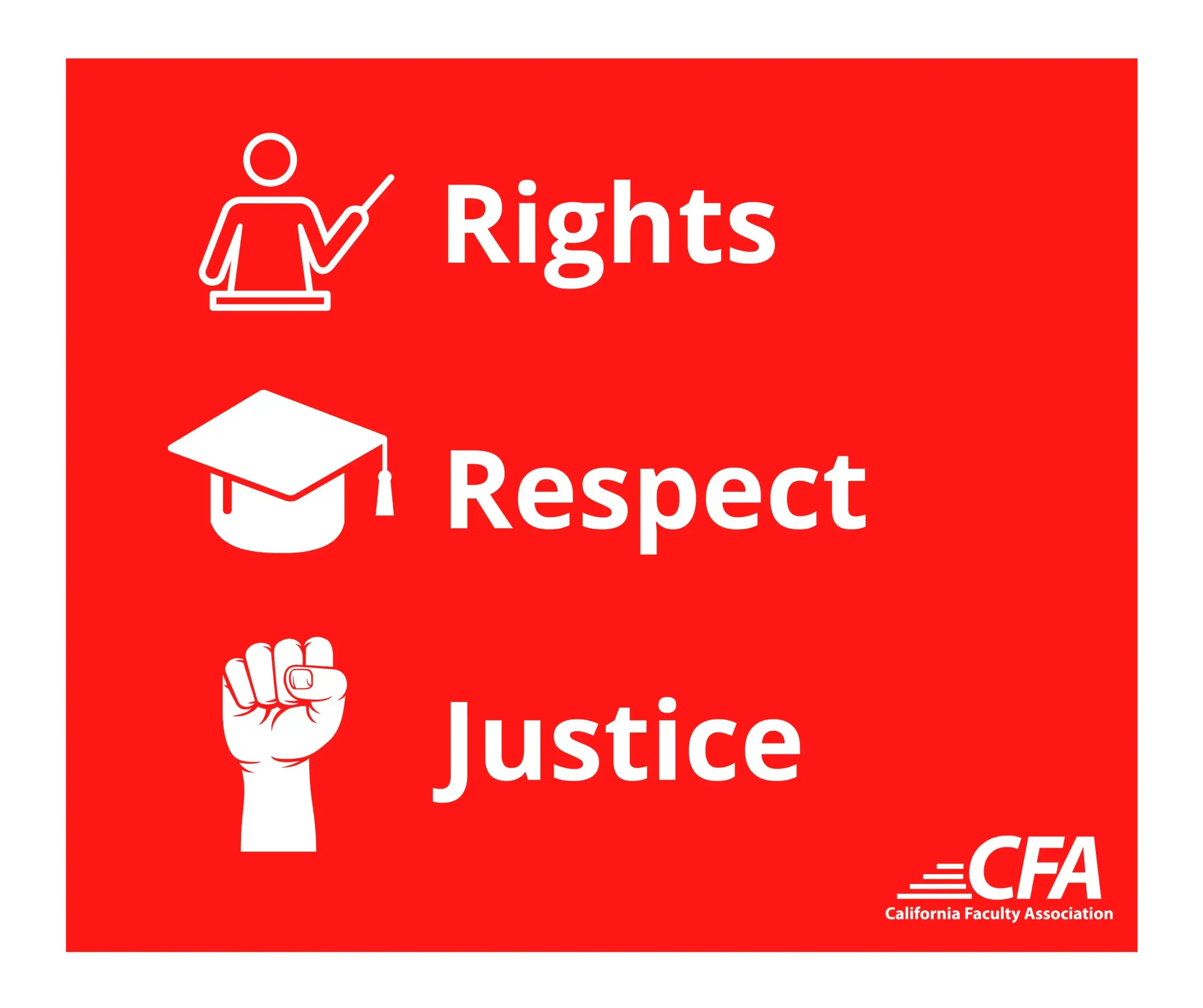CSU Labor Relations Team Out-of-Touch in Bargaining Meetings
The CFA Bargaining Team endured another negotiations session with an out-of-touch CSU management.
Not only did the CSU bargaining team refuse to respond in a meaningful way to our previous session’s emotional story sharing about racism, sexism, homophobia, and transphobia in the CSU, their team also brushed off faculty concerns about increased and unmanageable workload.
“Expressing our faculty concerns about a number of structural inequities, the actual lived experiences of faculty and their ever-increasing work had no impact on the CSU bargaining team,” said CFA President Charles Toombs. “They apparently do not judge these concerns important.”

After the session, one CFA Bargaining Team member referred to CSU Labor Relations team as “intractable, stubborn, obstinate, unfeeling, and unmoving.”
Throughout the bargaining process, the CFA Bargaining Team has put forth multiple proposals addressing structural racial and social justice issues within the CSU. At our April 16 session, our Bargaining Team invited the CSU to reconsider their rejection of our anti-racist proposals, particularly those proposing changes to the role of student evaluations and the creation of an ombudsperson program as an alternative to campus police, in non-criminal matters.
CSU management’s silence at our April 23 session shows they are committed to an outdated and ineffective idea of color blindness; that the way to end structural racism is to refuse to see it and wish it away.
“They rejected the existence of structural racism and how this affects our faculty and students,” said Nichelle Henderson, Bargaining Team member and CSU Los Angeles lecturer. “We are doing all the emoting and they continue with unfeeling bureaucracy.”
Entering this round of Collective Bargaining Agreement (CBA) negotiations, workload was by far the No. 1 concern and priority of faculty who completed our bargaining survey in Fall 2019. That strain only intensified during the COVID-19 pandemic when faculty shifted instruction and service delivery to other modalities while trying to address a multitude of concerns and struggles of their families and students.
The two sides discussed CFA’s proposals on counselor and librarian workload, with little movement from the CSU.
“Management’s belief that the current contract is adequate to address these workload issues is not reality based,” said Carrie Sakai, CFA Bargaining Team member and recently retired San Diego State counselor. “They’re denying the problem, denying the solution, denying the responsibility.”
CFA has 150 open grievances against the CSU for violating workload provisions of our current CBA, so we respectfully disagree with management’s assessment.
Also at the negotiating session, CSU management accepted CFA’s exceptional service proposal, but refuses to call it cultural taxation and to increase the award amounts.
“There’s no acknowledgement of what we do in the CSU,” said Meghan O’Donnell, CFA Bargaining Team member and CSU Monterey Bay lecturer. “They are out of touch with what’s happening at campuses, out of touch with what our jobs look like, out of touch with what our students look like, and out of touch with what we need to do our jobs.”
Check www.CFAbargaining.org for updates on negotiations and to see proposals from CFA and the CSU.
Join California Faculty Association
Join thousands of instructional faculty, librarians, counselors, and coaches to protect academic freedom, faculty rights, safe workplaces, higher education, student learning, and fight for racial and social justice.